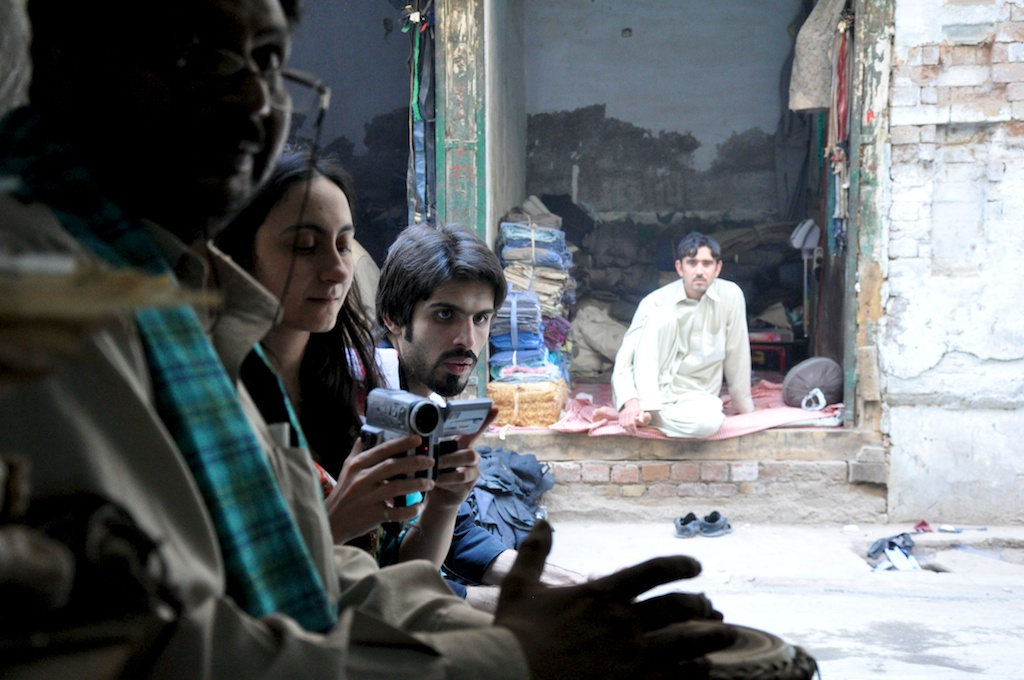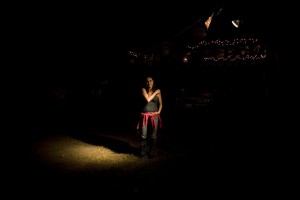Viviana Mazza: Interview with an Italian Journalist
We met Italian Journalist Viviana Mazza on Twitter, when researching the difficult story of Fakhra Younas, a Pakistani woman who was attacked with acid, and taken in by Italy where she underwent countless surgeries until she ended her life March 17, 2012. Viviana helped us connect with Elena Doni, the author of Fakhra’s memoir, a best seller in Italy when it was published. We collaborated and published related articles in the US, Italy and Pakistan on the same day. Viviana agreed to do an e-interview with us. – Anora
What writing do you currently do?
This year I have covered stories in Iran, Syria, the United States and Qatar.
I have written about war, elections, art and technology, pop culture, education, religion, social media, political dissidents, web fiction, gay marriage, and many other subjects.
What they all have in common is that they are all stories are about people.
I write hard news and features for the newspaper, magazine articles, blog posts, data visualizations, and live-tweets. I also shoot my own videos sometimes.
What led you to being a journalist?
I just wanted to write.
How come your English is so good?
Thanks to a man from Liverpool who taught me for years in Catania, where I was born. It helped that I studied in Italy, but I’ve also studied, lived and worked in the UK, the US, and Egypt.
Do you have a mission as a writer or journalist?
I want to tell people’s stories. I am trying not to tell my story but theirs.
Have you written or do you want to write a book? If so, what subject matter?
I want to write a book about my grandmother, Rosa Adorno. She lived in a small town in Sicily and recently passed away. She is my role-model. She planned to go to America, and she got a diploma as a tailor so that she could find some work, but in the end she didn’t go because her husband had a strong connection to the land in Sicily, and he would have suffered if they had left. At heart she was both an artist and a businesswoman: you should see her embroidery work, it is just perfect.
You’ve done some interesting articles that include reporting public response in Tweets and Comments. Talk about that new development.
The London riots and the revolution in Egypt have showed us that it’s important to keep social media on our radar when we are reporting. But we should keep in mind that social media is not only a space for expression, but also a place for influencing public perception in competition with others; during the US presidential debates, for instance, the two campaigns (and their supporters) were fighting there, and during the current conflict in Syria competing narratives are struggling for attention. You cannot and should not ignore social media, but it is imperative (and sometimes difficult) to verify the content and think critically.
Where have you traveled?
I’ve been to many countries in the Middle East, and to the majority of the States in America. I still need to discover Africa, most of Asia, and Australia.
Has the independent / self-publishing world arrived in Italy?
Yes, many people publish e-books now. In fact, a couple of years ago, my newspaper opened a column about e-books on the website. However, I would say that there is still a perception in Italy that what is printed on paper has more value than what is published only in digital format.
What are some topics around women and writing that you would like to see more coverage of?
Both women’s and men’s roles in society are changing. I am interested in seeing how men’s world is changing as a consequence of changes in women’s roles in society. For instance, we have written about Malala Yousafzai, the 15-year-old Pakistani girl who was shot by a Taliban because she was a symbol for girls education. This story is about Malala and her courage.
But in order to understand what happened, we also need to understand why a guy shot a 15-year-old girl. What is the link between his education, his ideology and gender roles in his society? I have recently interviewed an Afghan guy who has five sisters and who grew up in Pakistan near the place where Malala was shot. I’m going to write a blog post about that. I write for a women’s blog called the 27th hour or 27esimaora. (According to a study, the day of an Italian woman lasts 27 hours.)
What else would you like to share with our readers, 80% of whom are in the US?
I would just like to share an idea: We are all tempted to close ourselves in our cozy little worlds. But in the end it’s so much more interesting if you open up and learn about the world. It’s better to be open, whether you live in Italy, in Pakistan, or in America.
—
Follow Italian journalist Viviana Mazza on Twitter @viviana_mazza.
Viviana won an international journalism award in 2010, the Luchetta Prize.
Category: Contemporary Women Writers, Interviews, Italian Women Writers
Comments (3)
Trackback URL | Comments RSS Feed
Sites That Link to this Post
- Malala, the Story by Viviana Mazza - Women Writers, Women Books | October 18, 2013






I love this point that you made: “We are all tempted to close ourselves in our cozy little worlds.” Whether physically or mentally, I find this to be true for the majority of people. We become comfortable and never leave that zone. I would agree that, in order to be good writers, we have to broaden our views of the world. The discussion of gender roles in this post really drew me in, and I would love to hear more about your thoughts on gender roles and how they are changing both in the US and abroad and a comparison of the two. Thanks for sharing your thoughts with us.
I totally agree with Viviana’s statements about the impact social media have had on the way information is shared, perceived and influenced. The immediacy is astounding but also very easily manipulated. What I think we all need to remember is that horrific things such as the attack on Fakrah Younas or the shooting of the 15 year-old Malala Yousafzai have always been happening – the difference now is that we are informed with heart rending detail. I am still haunted by a 2009 video that one of my English students showed me on his mobile phone of a group of middle school students (I’m not sure from which country) who ripped the clothing off a young girl then proceeded to stone her to death on camera. This is a very delicate issue because the systematic desensitizing of youth via bombardment by images of violence as “entertainment” perpetrated through games, animation and series programming – not to mention network broadcast news. The attitudes of men and boys toward women are deeply influenced by all these media – men generally tend to be visually influenced and sadly the objectification of women in images is still going strong.